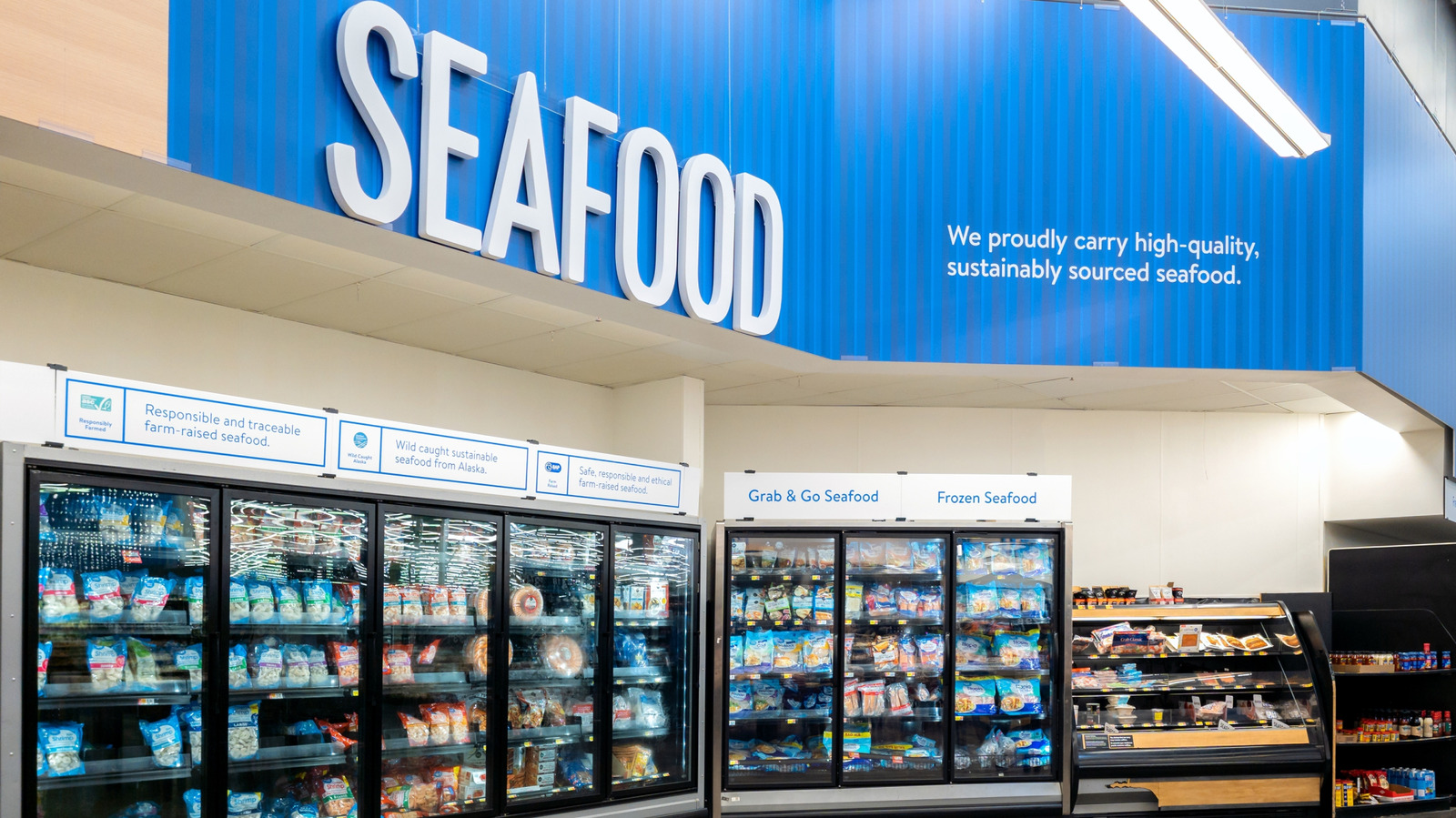
"From sustainability, to rising prices, and a plethora of brands and labeling standards to sift through, food buying choices today can seem ... complicated, to say the least. Specifically, before buying your fish at Walmart for that weeknight baked salmon recipe, you might want to know that the retailer has been criticized for falling short in terms of quality and sustainability standards. While big box retailers like Walmart can be an excellent choice for value shopping, low prices, and big-name brands,"
"Though in recent years the household retailer has made strides in vocalizing its sustainable responsibility initiatives and launched sustainability-forward items like its Marine Stewardship Council certified sustainable canned tuna, Walmart has long been a bit behind other grocery store chains like Whole Foods, Safeway, and Aldi, that are generally trusted for their sustainable, quality seafood products. In contrast, Walmart has been the subject of lawsuits contesting the retailer's labeling liability, stated quality, and proposed fishery standards."
Walmart's seafood offerings have drawn criticism for inconsistent quality and weaker sustainability practices despite competitive pricing. The retailer has introduced sustainability efforts and products labeled with certifications such as Marine Stewardship Council certified canned tuna. Major competitors like Whole Foods, Safeway, and Aldi receive higher trust for sourcing transparency and responsible seafood. Greenpeace rates Walmart as "mediocre" on transparency, initiatives, and policy. Consumers have filed lawsuits alleging misleading sustainable labeling and greenwashing. Legal scrutiny and public pressure highlight ongoing concerns about Walmart's labeling, sourcing standards, and the need for clearer sustainability commitments.
Read at Tasting Table
Unable to calculate read time
Collection
[
|
...
]